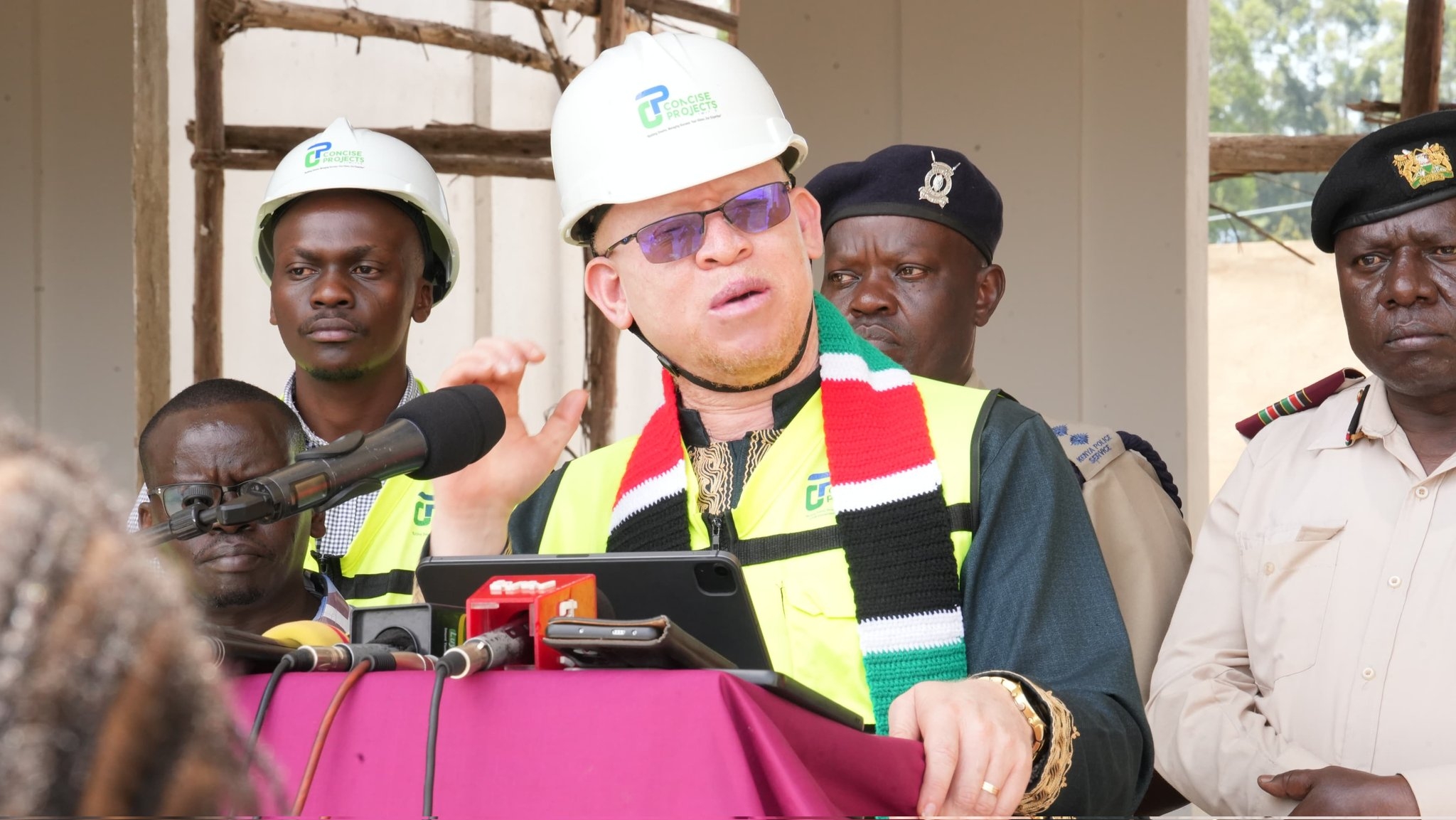Pressure from various quarters forced Inspector General of Police Japhet Koome to change his stand on the newly reviewed police salaries.
Koome had last week issued an internal memo asking his officers to wait for a task force report on police reforms to effect better salaries and ignore proposals by the Salaries and Remuneration Commission.
His memo triggered pressure from officials including those from SRC telling him to allow the proposed salary increases to take effect even as they waited for the David Maraga Task force report.
This forced him to accept the SRC proposal and meet with fellow commissioners at the National Police Service Commission on Wednesday where they announced the conclusion of a job evaluation process and the new salaries, officials say.
“The IG felt the new salaries especially for the junior officers were too small and hoped to wait for the report. But this did not go well with some officials hence the pressure and change of stand,” said an insider aware of the intrigues.
The third remuneration review cycle affects both the uniformed officers and civilians within the service. Commission chairman Eliud Kinuthia said the process is in line with the review cycle of the civil servants' pay as provided for by the Constitution.
He added this has no relation with a report to be released by the David Maraga-led task force.
"There is a clear delineation of mandate between a constitutional commission and a task force," he said.
"It would have happened whether or not the task force was in place or not, the Presidential task force in fact has the higher mandate."
The first circular on police review was released in 2019 following the third phase of increment with the second one being issued in 2020 for the final phase of the previous administration.
Out of Sh27.1 billion released by the Treasury for pay increment, police gets Sh3.6 billion.
Some Sh2.84 billion will be released in the 2023-24 financial year while Sh1.3 billion being set for the next financial year. Koome said the money will be reflected in the payslips by Friday.
Koome had told his juniors the increase would not be effected as announced by SRC.
Instead, he told his officers to be patient until a task force formed to review police affairs completes its work.
“Consequently, you are asked to inform all members of the National Police Service to be patient for the next few weeks with a view to waiting for the release of the Presidential task force on reforms in the National Police Service report/recommendations to the appointing authority,” he said in an internal memo dated August 11.
He said once this has been done, all will be informed of the new salaries and allowances by this office.
The terms of reference of the retired Chief Justice David Maraga task force are to review the human capital management and development policies with a view of examining and reviewing standards and practices in recruitment, deployment, transfers, training, career progression, performance-based and competitive promotions, reward, exit, and post-exit management.
President William Ruto established the task force through a Gazette Notice on December 21, 2022. This was to identify and recommend legal, policy, administrative, institutional, and operational reforms in the National Police Service and the Kenya Prisons Service for effective service delivery.
A newly recruited constable police officer will now earn a monthly salary of Sh21,645 in the review.
The new salary scales show that officers based on their ranks and years in service have an increase of between Sh1,255 to Sh9,439 in the new pay.
A long-serving constable who has been earning Sh38,975 will now receive Sh40,354 in the new pay while a new corporal officer will get Sh27,879 in the new pay.
A corporal currently earns Sh26,500.
For a recently promoted sergeant, the new salary scale shows they are set to take home Sh38,829 up from the current Sh36,450 while a long-serving one will earn Sh55,049 up from Sh53,570.
A recently promoted senior sergeant police officer will now receive an additional Sh1,379 in their pay slips raising their monthly salary to Sh41,649 while a senior one and the same rank will get Sh60,449 up from Sh58,820.
A senior officer in the rank of an Inspector of Police (IP) will get Sh1,629 and will now go home with Sh64,379 from the current Sh62,750 with the lowest one but the same rank getting Sh44,369 from Sh42,940.
A chief inspector whose pay basic salary has been capped will now enjoy Sh71,789 from Sh68,720.
Junior officers in the same rank will earn Sh49,769 up from Sh47,290.
An officer of the rank of Superintendent will get an increase of between Sh1,479 and Sh5,159 depending on one's year of service.
An officer of the rank of Senior Superintendent of Police will get an increase of between Sh3,069 and Sh5,549.
A commissioner of police which is held by a county police commander will receive Sh156,229 with the lowest in the same rank getting Sh106,929 in the new pay.
Those in the rank of Assistant Inspector general of police are set to earn Sh218,269 while a Senior Assistant Inspector General which is the third highest rank in the service whose pay has been increased to close to Sh10,000 will be receiving Sh298,529 basic salary, a growth from Sh289, 090.
A new entrant in the same rank will earn Sh200,889 up from Sh189,640. Many officers feel the salaries are too meager.
SRC chair Lyn Mengich said civil servants will get a salary increase of between seven and 10 percent over a two-year period, inclusive of the existing notch increase, which averages three percent annually.
Mengich confirmed that the National Treasury had allocated Sh27.1 billion for the Financial Year 2023/24.
The pay rise will be backdated to July 1.
"The salary structures for union employees to be undertaken through the Collective Bargaining Negotiations (CBN) process,” she said.















